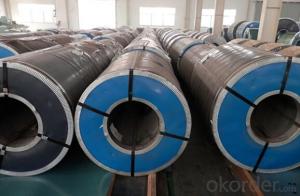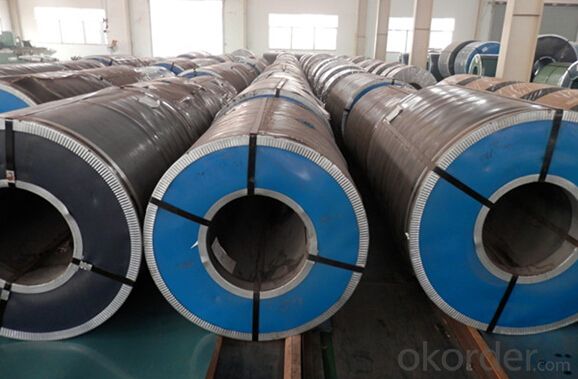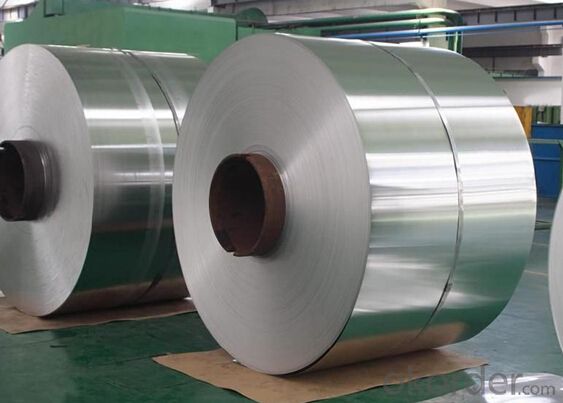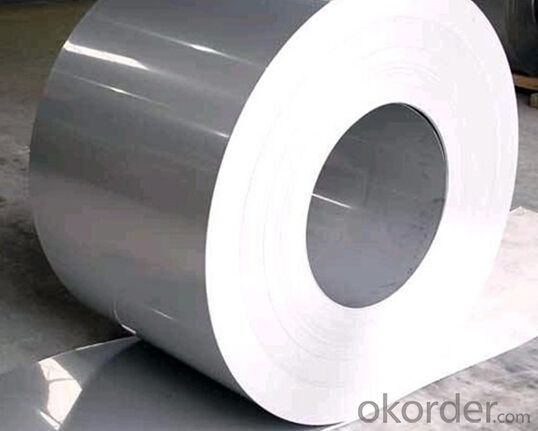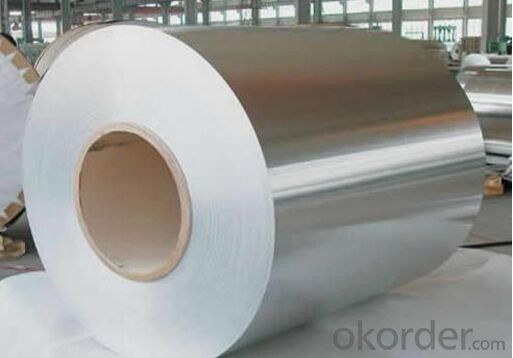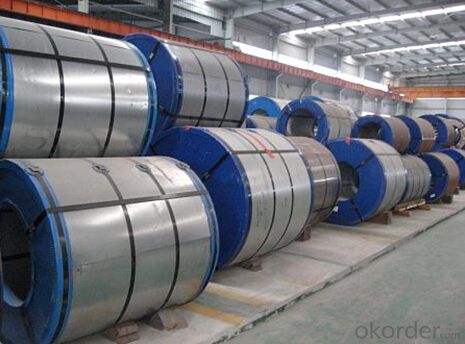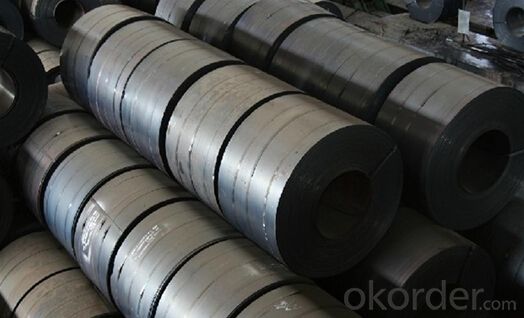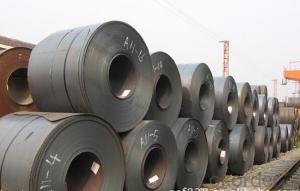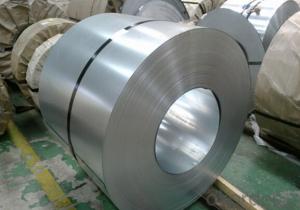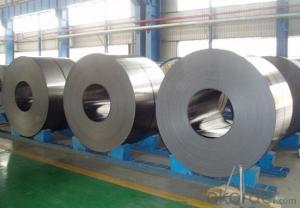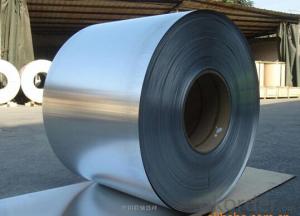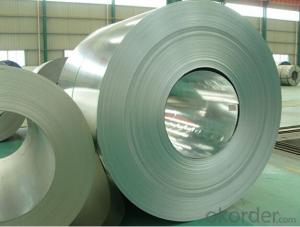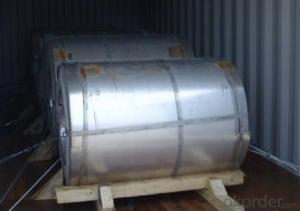Grade EN10346-DX53D+Z Galvanized Steel Coil
- Loading Port:
- Tianjin
- Payment Terms:
- TT OR LC
- Min Order Qty:
- 3 m.t.
- Supply Capability:
- 10000 m.t./month
OKorder Service Pledge
OKorder Financial Service
You Might Also Like
Specification
Grade Grade EN10346-DX53D+Z Galvanized Steel Coil
Specification of Grade Grade EN10346-DX53D+Z Galvanized Steel Coil
1. Galvanized Steel Coil
(1) Width: 600-1570mm
(2) Thickness: 0.13-5.0mm
(3) Grade: JIS G3302-SGCC-SGC570, SGCH (full hard-G550), SGHC-SGH540
EN10346-DX51D+Z, DX53D+Z, S250GD-S550GD
STM A653-CS-B, SS255-SS550
(4) Zinc Coating: Z40g/m2~Z500g/m2 (both side total coating thickness)
2. Galvalume Steel Coil
(1) Width: 600~1500mm
(2) Thickness: 0.15~2.30mm
(3) Grade: JIS G3321-SGLCC, SGLC400-570, (G550)
EN10346-DX51D+AZ, DX53D+AZ, S250-S550
ASTM A792M CS-B, SS255-SS550
(4) AZ Coating: AZ50~AZ185g/m2
3. Prepainted Galvanized Steel Coil (PPGI)
(1) Width: 600~1250mm
(2) Thickness: 0.19~1.50mm
(3) Grade: JIS G3312-CGCC, CGC340-570, (G550)
ASTM A755M CS-B, SS255-SS550
(4) Zinc Coating: Z40g/m2~Z500g/m2 (both side total coating thickness)
4. Prepainted Galvanized Steel Coil (PPGL)
(1) Width: 600~1250mm
(2) Thickness: 0.20~1.50mm
(3) Grade: JIS G3322-CGLCC, CGLC340-570, (G550)
ASTM A755M CS-B, SS255-SS550
(4) AZ Coating: AZ50~AZ185g/m2 (both side total coating thickness)
5. Cold Rolled Steel Coil (Soft) (for further information, pls click the product name)
(1) Width: 600~1570mm
(2) Thickness: 0.13~2.50mm
(3) Grade: JIS G3141-SPCC-SD, SPCD-SD, SPEC-SD
JIS G3135-SPFC 340/390/440
EN10130-DC01, DC03, DC04
SAE1006, SAE1008
ASTM A424-TypeⅡ
6. Cold Rolled Steel Coil (Full Hard) (for further information, pls click the product name)
(1) Width: 600~1570mm
(2) Thickness: 0.13~2.50mm
(3) Grade: JIS G3141-SPCC-1B, SPCC-1D
7. Hot Rolled Steel Coil
(1) Width: 1000~1524mm
(2) Thickness: 1.20~16.5mm, other thickness can be negotiation
(3) Grade: JIS G3101-SS400, JIS G3132-SPHT1/2/3, ASTM A36, Q195, Q235 etc.
Company Introduction of the Grade EN10346-DX53D+Z Galvanized Steel Coil
CNBM International Corporation is the most import and export platform of CNBM group(China National Building Material Group Corporation) ,which is a state-owned enterprise, ranked in 270th of Fortune Global 500 in 2015.
With its advantages, CNBM International are mainly concentrate on Cement, Glass, Iron and Steel, Ceramics industries and devotes herself for supplying high quality series of refractories as well as technical consultancies and logistics solution.
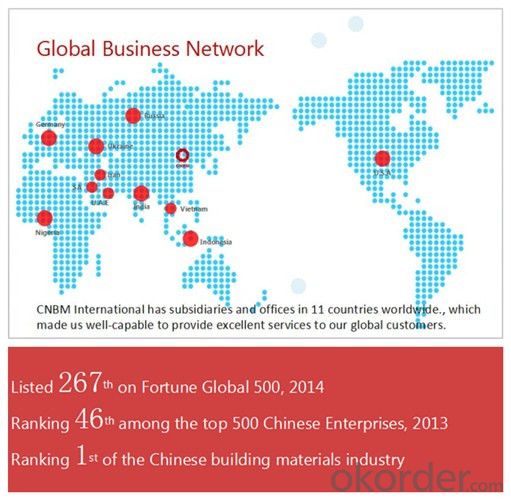
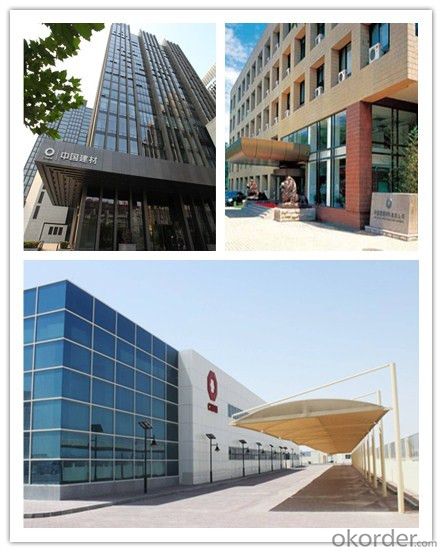
Packaging & Delivery of the Grade EN10346-DX53D+Z Galvanized Steel Coil
Packaging Detail | Sea worthy packing /as per customer's packing instruction |
Delivery Detail | 15 ~ 40 days after receiving the deposit |
Products Show:
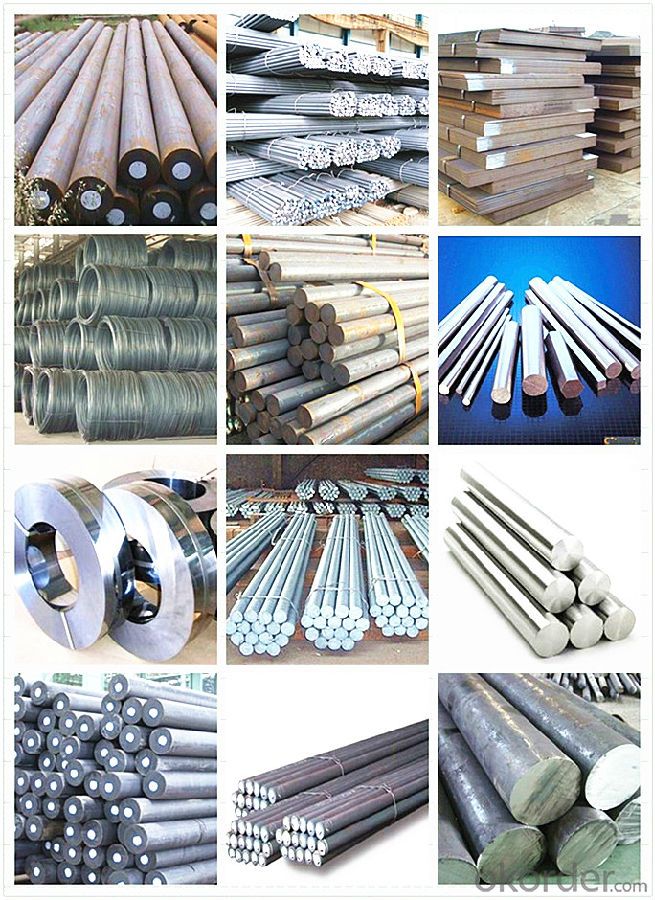
FAQ:
Are you a trading company or manufacturer? | Manufacturer |
What’s the MOQ? | 3 metric ton |
What’s your delivery time? | 15-35 days after downpayment received |
Do you Accept OEM service? | Yes |
what’s your delivery terms? | FOB/CFR/CIF |
What's the Payment Terms? | 30% as deposit,70% before shipment by T/T |
Western Union acceptable for small amount. | |
L/C acceptable for large amount. | |
Scrow ,Paybal,Alipay are also ok | |
Why choose us? | Chose happens because of quality, then price, We can give you both. Additionally, we can also offer professional products inquiry, products knowledge train (for agents), smooth goods delivery, excellent customer solution proposals. |
What's your available port of Shipment? | Main Port, China |
What’s your featured services? | Our service formula: good quality+ good price+ good service=customer's trust
|
Where are your Market? | Covering more than 160 countries in the world |
- Q: What are the specific requirements for special steel used in the railway wheel industry?
- The specific requirements for special steel used in the railway wheel industry include high strength, durability, and resistance to wear and fatigue. The steel must have excellent mechanical properties to withstand heavy loads and impact forces. It should also have good heat treatment characteristics to ensure proper hardness and toughness. Additionally, the steel must meet strict dimensional and geometrical specifications to ensure compatibility with the railway system.
- Q: Can special steel be used in the transportation industry?
- Yes, special steel can be used in the transportation industry. Special steel alloys, such as high-strength steels, stainless steels, and heat-resistant steels, offer superior mechanical properties, corrosion resistance, and temperature stability. These properties make them ideal for various applications in transportation, including manufacturing of automobile bodies, aircraft components, railway infrastructure, and shipbuilding. Special steel's durability, strength, and resistance to wear and tear make it an excellent choice for ensuring the safety, reliability, and efficiency of vehicles and transportation systems.
- Q: What are the main applications of special steel in the power distribution industry?
- Special steel is extensively used in the power distribution industry for various applications. Some of the main applications include manufacturing of transmission towers, electrical poles, and conductors. Special steel's high strength, durability, and corrosion resistance make it ideal for these critical components, ensuring reliable power transmission and distribution infrastructure. Additionally, special steel is used in the production of electrical transformers, switchgear components, and power generation equipment, further enhancing the efficiency and reliability of the power distribution systems.
- Q: How is nitriding steel used in the production of tools and dies?
- Nitriding steel is used in the production of tools and dies to enhance their hardness, wear resistance, and overall performance. The process of nitriding involves introducing nitrogen to the surface of the steel, forming a hard nitride layer that significantly improves the tool's durability and lifespan. This treatment allows the tools and dies to withstand high temperatures, resist corrosion, and maintain their sharpness, making them more efficient and cost-effective in various industrial applications.
- Q: How does special steel contribute to the energy aftermarket industry?
- The energy aftermarket industry heavily relies on special steel for the production and maintenance of various energy equipment and infrastructure. This type of steel is crucial as it provides durable and high-quality materials. One important application of special steel is in the manufacturing of turbine components like blades, rotors, and casings. These components are essential for power generation, especially in thermal, hydro, and wind energy systems. Special steel possesses exceptional strength, corrosion resistance, and high-temperature stability, ensuring the efficient and reliable operation of turbines even in harsh environments. Moreover, special steel plays a vital role in the construction and upkeep of oil and gas pipelines. These pipelines are responsible for transporting energy resources over long distances and require materials that can withstand extreme pressures, temperatures, and corrosive environments. Special steel grades with enhanced mechanical properties and corrosion resistance are utilized to maintain the integrity and safety of these pipelines, ultimately improving the efficiency and reliability of the energy aftermarket industry. Furthermore, special steel is used in the production of storage tanks, heat exchangers, and various other components employed in the oil, gas, and renewable energy sectors. These components are crucial for storing and processing energy resources and necessitate materials that can endure high pressures, temperature changes, and aggressive chemicals. Special steel grades provide the necessary mechanical properties and corrosion resistance, enabling safe and efficient energy storage and processing. Apart from its material properties, special steel also enables advanced manufacturing techniques like precision machining and welding. These techniques are crucial for producing complex energy equipment and components, ensuring high accuracy, reliability, and efficiency in the production process. This, in turn, leads to high-quality end products that meet the demanding requirements of the energy aftermarket industry. Overall, special steel significantly contributes to the energy aftermarket industry by providing materials with exceptional strength, corrosion resistance, and high-temperature stability. Its utilization in the manufacturing and maintenance of energy equipment and infrastructure enhances efficiency, reliability, and safety, ultimately supporting the growth and sustainability of the industry.
- Q: Can special steel be used in the textile industry?
- Yes, special steel can be used in the textile industry. Special steel, such as stainless steel, can be used in the production of various textile machinery components, including needles, pins, and loom parts. It offers durability, corrosion resistance, and strength, making it suitable for demanding textile manufacturing processes. Additionally, special steel can be used in the fabrication of textile machine frames and structures, providing the necessary stability and support.
- Q: How does special steel perform in hydrogen embrittlement conditions?
- Special steel, also known as high-strength steel or alloy steel, typically exhibits excellent resistance to hydrogen embrittlement conditions. Hydrogen embrittlement is a phenomenon in which hydrogen atoms invade the metal's lattice structure, causing it to become brittle and prone to fractures under stress. Due to their unique composition and microstructure, special steels are designed to withstand harsh environments, including hydrogen embrittlement conditions. These steels often contain alloying elements such as nickel, chromium, and molybdenum, which enhance their resistance to hydrogen-induced cracking. The presence of these alloying elements in special steel promotes the formation of protective oxide layers on the steel's surface, which act as a barrier to prevent hydrogen atoms from diffusing into the metal matrix. Additionally, these elements can trap and bind hydrogen atoms, reducing their mobility and minimizing their detrimental effects on the steel's mechanical properties. Furthermore, special steels are often subjected to various heat treatments and processing techniques, such as quenching and tempering, to further enhance their resistance to hydrogen embrittlement. These processes help refine the steel's microstructure, improving its strength, toughness, and ductility while minimizing the potential for hydrogen-induced cracking. Overall, special steel demonstrates superior performance in hydrogen embrittlement conditions compared to standard steels. Its unique composition, microstructure, and processing techniques make it highly resistant to the detrimental effects of hydrogen atoms, ensuring the structural integrity and reliability of components and structures operating in hydrogen-rich environments.
- Q: How does special steel perform under extreme cold conditions?
- Special steel performs well under extreme cold conditions due to its high strength, toughness, and resistance to brittleness. It retains its mechanical properties even at low temperatures, making it suitable for various applications in sub-zero environments.
- Q: How does special steel contribute to the fatigue resistance of products?
- The exceptional fatigue resistance of products is attributed to the unique properties and manufacturing processes of special steel. Firstly, special steel is engineered and designed to possess enhanced strength and durability, resulting in high resistance against fatigue. This is achieved by incorporating alloying elements such as chromium, nickel, molybdenum, and vanadium, which enhance the material's ability to withstand cyclic loading and stress. Furthermore, rigorous heat treatment processes, including quenching and tempering, are employed to further improve the fatigue resistance of special steel. These processes refine the microstructure of the material, leading to a more uniform and fine-grained product. Consequently, the steel's ability to resist crack initiation and propagation, which are critical factors in fatigue failure, is significantly enhanced. Moreover, specialized surface treatments like shot peening or nitriding are often applied to special steel. These treatments introduce compressive residual stresses on the material's surface, acting as a barrier against crack formation and growth. This significantly boosts the fatigue resistance of the product. Additionally, special steel can be manufactured with specific grain orientations using directional solidification techniques. This allows for the alignment of grains along the primary loading direction, reducing the likelihood of crack initiation at grain boundaries and further improving the material's fatigue performance. In conclusion, the exceptional fatigue resistance of special steel is a result of its unique properties and manufacturing processes. The combination of enhanced strength, refined microstructure, specialized surface treatments, and tailored grain orientations make special steel the preferred choice in industries where fatigue failure is a concern. This ensures prolonged lifespan and reliability of products.
- Q: How is special steel used in the food processing industry?
- Special steel is commonly used in the food processing industry due to its unique properties such as corrosion resistance and high strength. It is used to manufacture various equipment and components such as knives, blades, cutting tools, mixing machines, and conveyor belts. These specialized steel products ensure food safety, improve processing efficiency, and maintain high hygiene standards in the industry.
Send your message to us
Grade EN10346-DX53D+Z Galvanized Steel Coil
- Loading Port:
- Tianjin
- Payment Terms:
- TT OR LC
- Min Order Qty:
- 3 m.t.
- Supply Capability:
- 10000 m.t./month
OKorder Service Pledge
OKorder Financial Service
Similar products
Hot products
Hot Searches
Related keywords
